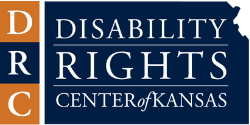EPSDT: Early and Periodic Screening, Diagnostic, and Treatment
What is EPSDT?
EPSDT is a set of expanded Medicaid benefits for children under age 21. EPSDT stands for “Early and Periodic Screening, Diagnostic, and Treatment.” It is part of the federal law that governs how states must run their Medicaid programs.
EPSDT entitles enrolled infants, children and adolescents to any treatment or procedure that fits within the categories of Medicaid-covered services listed in federal law if that treatment or service is medically necessary to address a condition. In addition to traditional medical procedures, treatment, and equipment, EPSDT also includes home health services, including attendant care services, in home nursing services, and medical respite services for caregivers. Almost all medically necessary services and supports are covered under EPSDT.
What are HCBS Waivers?
HCBS Waivers are Medicaid funded programs that allows individuals with disabilities to receive home-based services, remain in the community, and avoid institutionalization. HCBS stands for “Home and Community Based Services.” Kansas’s HCBS Waivers include the Intellectual/ Developmental Disability Waiver (I/DD), the Physical Disability Waiver (PD), the Traumatic Brain Injury Waiver (TBI), the Technology Assisted Waiver (TA); the Autism Waiver; the Frail Elderly Waiver (FE), and the Serious Emotional Disturbance Waiver (SED).
Although these Medicaid Waiver programs provide services that allow people to live in their homes, the two largest waivers (I/DD and PD) have years-long waiting lists that prevent applicants from receiving services. But for Medicaid beneficiaries under age 21, EPSDT can potentially cover similar home health services as the waiver would provide, including attendant care and nursing services. EPSDT will cover these services if they are medically necessary to improve the child’s disability.
How Can I Get EPSDT Covered Services?
The first step is to see your doctor and discuss what services may be necessary to correct or
ameliorate your child’s medical condition or disability. The back of this sheet contains general advice about how to advocate with your child’s doctor for medically necessary services that are covered under EPSDT. The Disability Rights Center of Kansas may be able to represent your child in an appeal of an EPSDT request denial, and its legal staff would be happy to answer any questions you may have about this process. The DRC can be reached at 1-877-776-1541.
Advice for Requesting EPSDT Covered Services
- Meet with Doctor/Medical Provider to Discuss Needed Services
The most important step in obtaining EPSDT covered services is to discuss this request with your child’s doctor or other medical provider. Because the services must be medically necessary, a medical professional needs to document that the requested services are necessary to ameliorate, or improve, a child’s medical condition or disability.
- Use the Kan-Be-Healthy Screening Tool and DRC Checklist
In Kansas, the EPSDT program is known as “Kan-Be-Healthy.” Kansas has designed a specific form for use during an EPSDT screen. A completed form should accompany any ESPDT request. The DRC has also drafted a checklist of different services covered under EPSDT. In addition to the EPSDT form, the doctor should complete the checklist and include it with the request.
- Have Doctor/Medical Provider Draft a “Letter of Medical Necessity”
The most important part of an EPSDT request is the doctor’s letter explaining why the services requested are medically necessary to correct or ameliorate the child’s medical condition or disability. The letter should contain a list of the child’s medical conditions and diagnoses as well as a detailed description of how the requested service corrects or ameliorates these conditions.
- Submit Request to Managed Care Organization
Once the screening form, checklist, and letter of medical necessity are completed, these documents need to be submitted to the Managed Care Organization (MCO) your child is enrolled with. The three MCOs are Aetna, Sunflower, and UnitedHealthcare. MCOs are required to respond to an EPSDT request with a notice informing the child if the request was denied or approved and the accompanying rationale for the decision.
- Appeal Rights
If the EPSDT request is denied, you have the right to challenge the denial through an appeal, but only if you act quickly. The appeal is first filed with the MCO, but can later be appealed to Kansas’s Office of Administrative Hearings (OAH). The initial appeal can be mailed or faxed but must be received by the MCO within 63 days of the date of the Notice of Adverse Benefit Determination. This gives the chance to provide more evidence of why the requested service corrects or ameliorates the child’s medical condition or disability. If the MCO upholds its denial after the initial appeal, this new denial can be further appealed by filing a request for a state fair hearing with OAH. These state fair hearing requests must be filed with OAH within 123 days from the date of the MCO’s denial of the initial appeal. State fair hearings offer the chance to present evidence to an impartial hearing officer about why the MCO’s denial was incorrect. Contact the DRC for more information about EPSDT denials and appeals, including the process for filing an appeal or requesting a state fair hearing, and how to request DRC legal services in connection with these appeals. Contact DRC. We can help.
.png)






